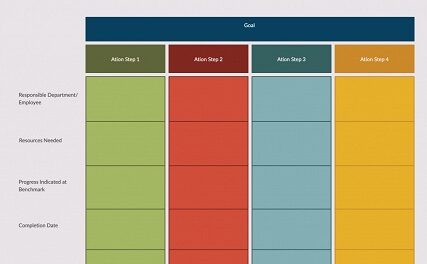Top Career Strategies in 2024
Today we will discuss about Top Career Strategies – If you’ve recently completed your university studies and successfully applied for a full graduate job, you may wonder if the hard work is over.
But if you are ambitious about achieving your goals, there is still a lot to do to climb the career ladder.
Today’s work sector is becoming increasingly competitive. Most employees want to advance in their careers and be recognized for their efforts. Finding ways to stand out from the crowd can be difficult if you work within a high-achieving and motivated workforce.
Building a successful career is a lifelong journey – it takes planning, dedication, and commitment.
This article discusses why a career strategy is important and provides 10 different career development strategies to help you achieve your career goals.
Why Are Career Strategies Important?
Having a career strategy will motivate you to figure out what you want from your career and work towards your goals. This will give you a sense of ownership over your future.
Career strategies enable you to focus on your long-term aspirations while providing purpose in your daily work.
You will face choices, opportunities, and setbacks throughout your career. Having a clear career strategy will help you avoid making quick decisions that will not benefit your career goals.
Most importantly, a career strategy will help you see what you have achieved and how far you have come. Having a strategy will help you look past any bad days and identify what you have achieved and what is still possible.
10 of the Best Career Strategies
-
Understand Your Personality Type and What Motivates You
Many different personality profiling tools available online can help you find out about your personality type.
Myers-Briggs is one of the most popular personality tests. The results of the Myers Briggs questionnaire will assign you to one of 16 personality types and provide you with useful information related to your potential strengths, weaknesses, and best-suited career paths.
You can use this information to decide which career path will best suit your personality – and, most importantly, which future roles you will enjoy and be inspired by.
-
Think Ahead
After you’ve identified your personality type, spend some time considering your ultimate career ambition or goal. If you can refine it to a specific job role, obtain a copy of the job description and person specification for that position.
Identify the key skills, qualifications, and experience needed for the job, and think about what you’ll need to do to acquire them.
If your overall career ambition requires you to move a few steps up the career ladder first, you can break this journey into segments. Again, obtain a copy of the job description and person specification for each job role – then consider the steps you need to take to make yourself an attractive candidate for promotion opportunities.
At the beginning of your career, it can be difficult to say where you want to be in 10, 20, or 30 years. If you are still looking for a specific job role you would like to work for, consider whether there is a particular industry in which you would like to work.
You can then spend time researching this career field, finding out about the various job opportunities, and identifying the competencies you will need to work.
-
Set goals in line with company strategy
Once you’ve started your new job role, research the company’s key goals and objectives. Think about how these compare to or complement your personal goals and objectives for your career progression.
Here are some questions to consider:
- Are you looking to gain experience in a particular field or discipline?
- Is your employer planning to expand?
- Is your manager willing to support you in achieving further qualifications?
Keep a written record of your personal goals. It’s a good idea to review this list frequently to recognize your achievements and identify areas where progress is still needed. (Top Career Strategies)
-
Connect with your employer’s development process
If you’re looking for ways to progress in your career, engaging with a company’s evaluation process is important. Try not to think of this as a tick-box exercise – instead, try to view it as a regular opportunity to discuss your progress with your manager.
Be honest about sharing your goals with your manager. Work with them to agree to SMART objectives (Specific, Measurable, Achievable, Relevant, and Time-Based) to help you achieve their work. You can use the appraisal discussion to discuss your strengths and areas for future development.
Think about how achieving your personal goals can benefit the business – and let your manager know, as this can be a good way to ensure they align with your growth plans.
After the evaluation, keep the agreed objectives at the forefront of your mind – this will help you stay focused and move forward in your career.
Ask for regular review opportunities with your manager to share your progress and quickly address any issues holding you back. (Top Career Strategies)
-
Take ownership of your career path
You are the master of your destiny; If you want to achieve something, you must work hard. If you want to attend a training course, don’t just review your performance and ask your manager if you can do so. Adopting this approach means they have to do all the work.
Instead, take the time to find out when and where the course runs, how much it costs, and what skills you can gain. This information means that your employer is much more likely to help you. Most importantly, think about how studying for it will help you contribute to the company’s overall strategy.
Similarly, if there’s a gap in your experience that means you’ve been unable to move up the career ladder, research ways you can address it. For example, you can ask to speak to employees already in this field, set up shadowing opportunities, or find out if there are other opportunities to help you gain the skills you need or not. (Top Career Strategies)
-
Make sure you are accepting the right job with the right employer
When planning where to pursue a career, staying focused on the goals you set at the beginning of the process is important. Only be tempted by a high-paying job opportunity if it is likely to help you realize your overall career objectives.
Equally, make sure you do your research before joining a new employer. The grass is only sometimes greener on the other side.
It is advised to arrange an informal face-to-face meeting with a potential new employer before applying. This will help you learn about the company and decide whether applying for the job role is right for you and your career goals. (Top Career Strategies)
-
Be aware that things can change
Having a comprehensive career strategy is useful, but you may need help to follow the path you’ve mapped out. Keep in mind that things can change quickly, both in and out of work, from unexpected redundancies to changes in family dynamics.
If you face an unexpected bump along the way, take some time to revisit and re-evaluate your goals. You may need to change your approach, but achieving your career aspirations will still be possible. (Top Career Strategies)
-
Remember to network
Establishing a strong business network is an effective way to help you achieve career advancement. Attending one-on-one networking events is a great way to meet others, exchange business cards, and discover upcoming job opportunities before they’re advertised.
And with the popularity of social media, it’s now even easier to network. LinkedIn or Facebook will enable you to contact others already working in your professional field. You can also use it to stay up to date with industry-related news, events, and job vacancies. (Top Career Strategies)
-
Make an appointment with a career coach
If you are committed to taking a proactive approach to your career development, visiting a career coach is wise.
A career coach will help you identify your existing knowledge, strengths, and transferable skills before exploring your career progression options and showing you the best ways to market yourself to potential employers.
-
Consider Alternative Ways to Upskill
As a graduate, you can follow the same career path as many others within your industry. In this situation, you will need to identify ways to upskill to ensure that you are the most attractive applicant when the opportunity for promotion arises. (Top Career Strategies)
Within Workplace, you can:
Ask a business leader to mentor you. Regular meetings with your mentor will allow you to ask questions, learn from their experience, and identify skills you need to develop further. Equally, if you are looking to progress into a management role, you might offer to mentor a junior staff member to improve your leadership skills.
Find a second chance. Working in a different part of the business (even if it’s only for a short time) will help you learn more about the organization and the impact of your current job role on other functions of the business.
Outside of work, you can:
Learn a new language. If your employer operates globally or your industry has overseas job opportunities, learning a new language will make you an attractive candidate to future recruiters.
Volunteer. Take yourself out of your comfort zone and try something different. You’ll learn new skills, meet different people and see things from a different perspective – plus, you’ll be contributing to a community. (Top Career Strategies)
Final thoughts
Planning your future career path can seem overwhelming, especially at the beginning of your career journey. Using career strategies will help you carefully consider your options as you face opportunities or difficulties.
To make the process less daunting, it’s a good idea to break it down the process. Consider what you’re good at, what interests you, what inspires you, and what you enjoy doing. These details will help you identify suitable job roles and work industries.
Once you have decided on your overall objective, you need to think about the different steps you need to take to get there. This can be anything from gaining more experience, studying for further qualifications, or developing specialist skills.





